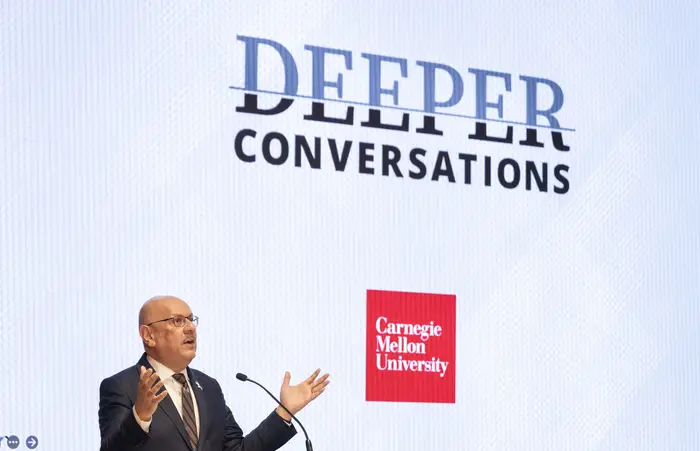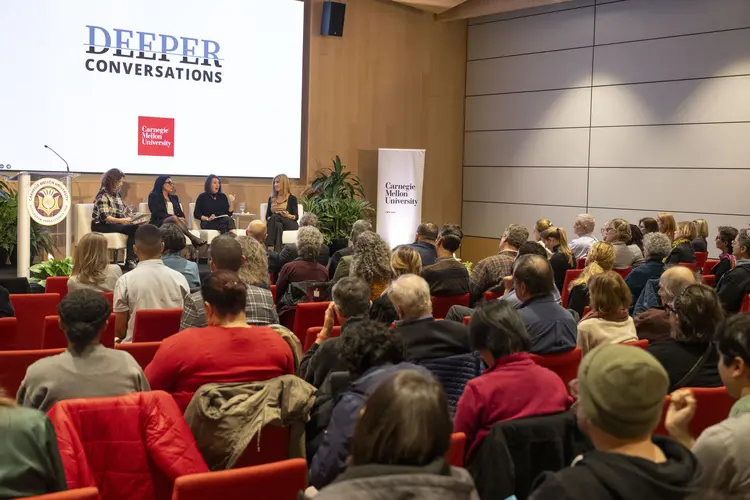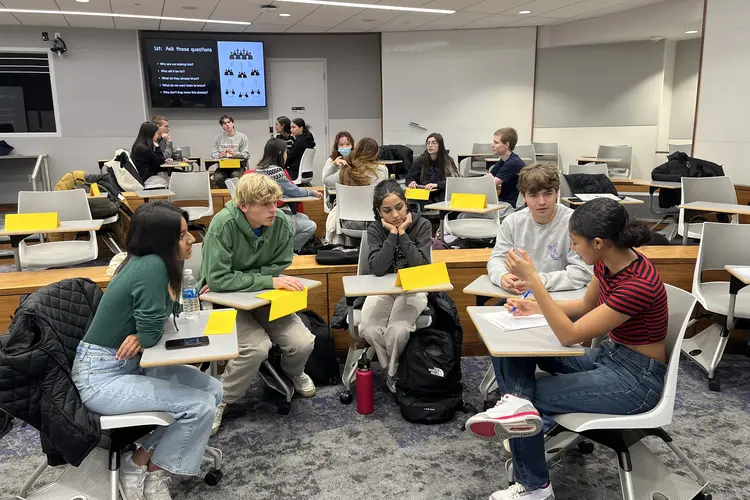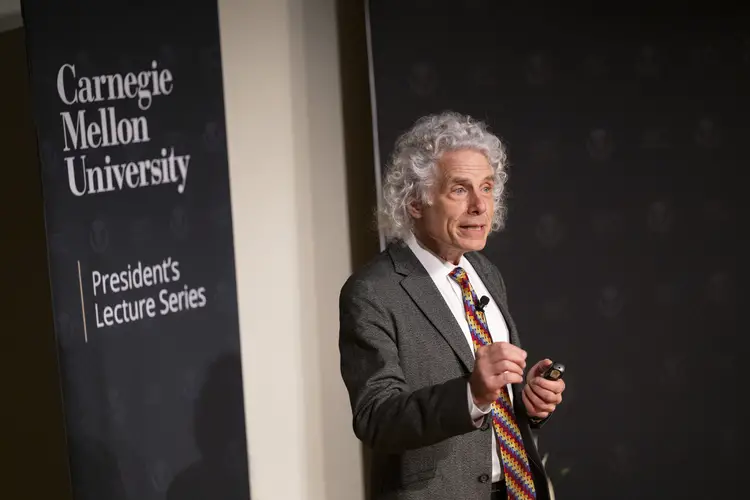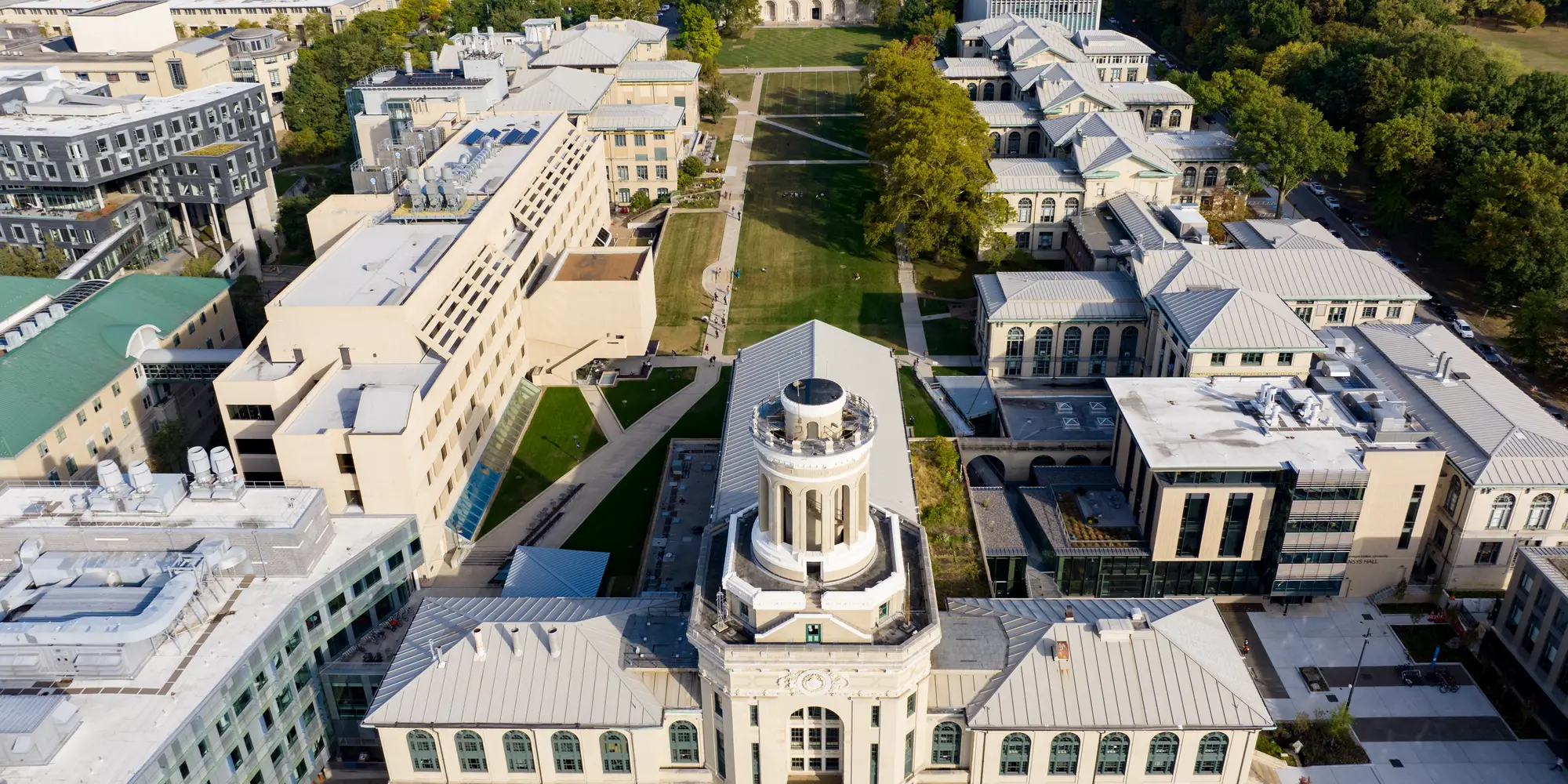
CMU’s Deeper Conversations Returns To Facilitate Election Year Discourse
Media Inquiries
Carnegie Mellon University’s Deeper Conversations(opens in new window) initiative returns to campus this fall to engage the Carnegie Mellon community in today's most challenging issues through civil discourse.
The series, launched in January 2024, encourages the community to broach pressing topics and exchange opinions in a healthy environment, underscoring the vital role that academic institutions play in facilitating meaningful discussion.
"We are an institution dedicated to educating the next generation of leaders, scholars and innovators — and empowering them to study complex topics, engage in meaningful dialogue and pose important questions," said Farnam Jahanian(opens in new window), president of Carnegie Mellon. "This university-wide initiative aims to build bridges of understanding by offering opportunities to discuss and dissect intractable issues facing society."
Deeper Conversations is part of a continual effort to promote constructive discourse through events and lectures. It is driven by the work of Ramayya Krishnan(opens in new window), dean of the Heinz College of Information Systems and Public Policy(opens in new window), and Richard Scheines(opens in new window), Bess Family Dean of the Dietrich College of Humanities and Social Sciences(opens in new window).
“In today's polarized world, universities play an important role in educating their communities about consequential topics,” Krishnan said. “Combining this education with opportunities to engage in civil discourse, where opposing viewpoints are shared and discussed, is essential to our democracy.”
In the 2023-24 academic year, Deeper Conversations focused on exploring the crisis that was unfolding in Israel and Palestine. This fall, Carnegie Mellon continues those efforts to combat hate while expanding Deeper Conversations to include programming on democracy and the U.S. election. On Wednesday, Sept. 11, Scheines will moderate a conversation focused on addressing political polarization in America. Panelists will include Kevin Zollman(opens in new window), Herbert A. Simon Professor of Philosophy and Social and Decision Sciences and director of the Institute for Complex Social Dynamics(opens in new window), Jonathan Cervas(opens in new window), assistant teaching professor from the Carnegie Mellon Institute for Strategy & Technology(opens in new window) (CMIST), and Karina Schumann(opens in new window), an associate professor and Social Program chair of the Psychology Department at the University of Pittsburgh.
"Democracy depends on informed citizens who can process information and make decisions that are not just on the basis of the tribe they are in,” Scheines said. “Universities are the institutions that should step up and find a way to get people past the echo chambers of social media and into a place where real learning can happen. Deeper Conversations is one piece of this puzzle."
On Oct. 1, Deeper Conversations will bring together several distinguished experts via a virtual panel to discuss immigration and its significance at the ballot box. Speakers will include Filiz Garip(opens in new window), sociology professor at Princeton University; Sabrineh Ardalan(opens in new window), director of the Harvard Immigration and Refugee Clinic; and Brian Kovak(opens in new window), professor of economics and public policy at CMU’s Heinz College. The event will be moderated by New York Times journalist Hamed Aleaziz(opens in new window).
The final event this fall will be a panel discussing nation-state interference in U.S. elections, bringing together experts to discuss the past, present and future of malevolent state threats. The event, moderated by CMIST’s Audrey Cronin(opens in new window), will bring together Bret Schafer(opens in new window) of the German Marshall Fund, Darren Linvill(opens in new window), co-director of the Watt Family Innovation Center Media Forensics Hub at Clemson University, and Bryan Prior of the Microsoft Threat Analysis Center.
More events will be held in the spring, including a distinguished lecture from The Washington Post’s David Ignatius(opens in new window) as part of the President’s Lecture Series(opens in new window).
